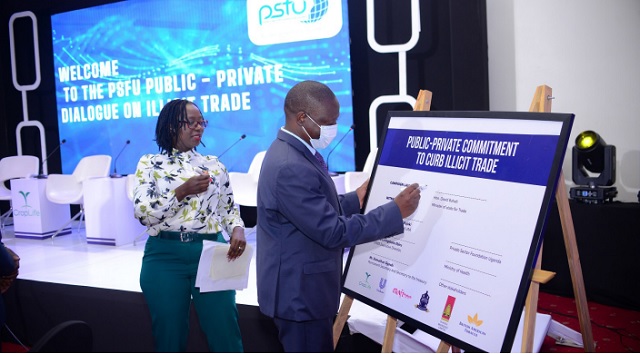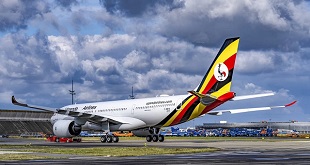
A technical working group to be formed to battle the vice that cost government billions of shillings
Kampala, Uganda | JULIUS BUSINGE | Government of Uganda and the private sector have revealed plans to form a technical working group to fight illicit trade.
It is estimated that the government lost Shs91billion in revenue in 2022 to illicit trade, with tobacco and alcohol markets constituting 29% and 64.7% respectively, according to the private sector position paper dated March 16.
In addition, 30% of seeds and over 40% crop protection products and fertilizers in Uganda are counterfeits, a situation that could place farmers into losses as well as health related concerns to the consumers.
“We need to join hands to fight this problem. It is a danger to all sectors of the economy because it poses unfair competition among players but also leads to loss of lives,” said Stephen Asiimwe, the executive director at Private Sector Foundation Uganda. He was speaking at a private sector dialogue on illicit trade held in Kampala on March 16.
Asiimwe said, the technical working group which consists of government, private sector and consumers among others plans to draw a detailed plan for each of the stakeholders to battle the illicit trade problem.
He said, there is need to fight illicit trade right from the local council level– in terms of laws, engagement and awareness.
David Bahati, the State Minister at the Ministry of Trade, Industry and Cooperatives welcomed the idea of forming a technical working group and promised full government support.
“This is time for action not merely talking,” Bahati said, “the problem is alarming that we must fight.”
Bahati described illicit trade as a potential threat to the country’s security, health and the economy in general. He said the technical working group will be important when it comes to dialogue aimed at battling the problem.
He said the renewed effort to fight illicit trade would be aided by the prevailing legal regime and key institutions as well as allocating more funds to Uganda National Bureau of Standards (UNBS).
Illicit trade prevalent in poor areas
David Livingstone Ebiru, the UNBS executive director said most of the illicit trade activities happen in the countryside where majority of the population is poor.
He also said that the harmonization of standards across the EAC market will support the work of the technical working group.
Juliana Kagwa, the corporate affairs director at Uganda Breweries Limited who also doubles as the chairperson of Uganda Alcohol Industry Association said, “We have done research on illicit alcohol and realized that Uganda Revenue Authority is only getting 35% of what they should be getting from the alcohol sector. The government is missing over Shs4trillion in tax in our industry alone.”
Illicit trade has for many years been common in alcohol, water, cigarettes, steel products, detergent products, ballpoint pens, electrical appliances, cosmetics, pharmaceuticals, agrochemicals, and computer software and hardware spare parts.
Other participants at the dialogue included, Mathu Kiunjuri, the managing director at BAT Uganda, Solomon Seruwo from CropLife Uganda, Robert Kitenda from Movit Uganda among others.
 The Independent Uganda: You get the Truth we Pay the Price
The Independent Uganda: You get the Truth we Pay the Price



